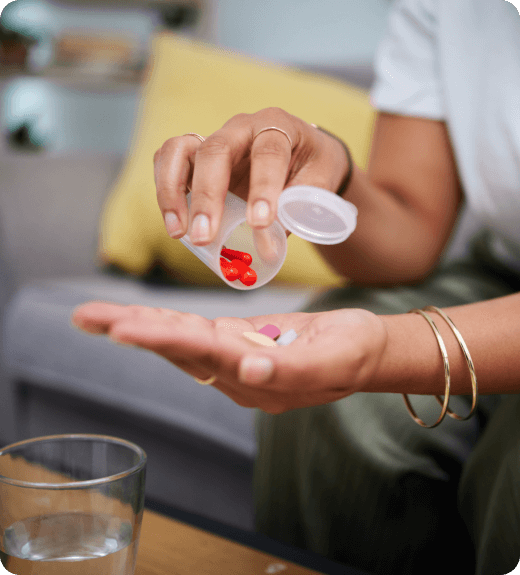
Medication-Assisted Treatment (MAT) has emerged as an effective approach in guiding individuals through the journey of recovery from opioid or alcohol addiction. At Silver Linings Recovery Center in Langhorne, PA, and East Windsor, NJ, we integrate MAT with comprehensive behavioral therapies to provide a holistic treatment plan tailored to each individual’s needs.
Understanding MAT
MAT combines FDA-approved medications with various therapeutic interventions to support individuals in overcoming addiction. These medications are administered under professional supervision to manage withdrawal symptoms and reduce cravings, crucial steps in achieving sustained sobriety without forming a new addiction.
MAT for Alcohol Addiction
For individuals struggling with alcohol dependence, MAT offers FDA-approved medications such as Acamprosate and Disulfiram:
- Acamprosate: Helps in reducing alcohol cravings and supports the recovery process by alleviating the distressing urge to consume alcohol. Side effects may include headaches, diarrhea, and dizziness.
- Disulfiram: Acts as a deterrent to alcohol consumption by causing unpleasant effects if alcohol is consumed. These effects typically include headaches, nausea, and more severe symptoms in some cases, discouraging further drinking.
MAT for Opioid Addiction
MAT for opioid addiction includes medications like Methadone, Buprenorphine, and Probuphine:
- Methadone: Reduces cravings and withdrawal symptoms associated with opioid addiction. Proper administration is crucial as misuse can lead to serious side effects like seizures or respiratory issues.
- Buprenorphine: Helps manage opioid cravings and withdrawal symptoms with a lower risk of misuse compared to other opioids. Side effects may include nausea and constipation.
- Probuphine: An implant placed in the upper arm that delivers continuous medication for up to 6 months, offering convenience and steady support in the recovery journey. Side effects may include site discomfort and itching.
Integration of Mental Health Support in MAT
At Silver Linings Recovery Center, we recognize the interconnectedness of addiction and mental health. Many individuals struggling with substance use disorders also face co-occurring mental health conditions such as anxiety, depression, or PTSD. Our MAT programs are designed to address these complexities by:
- Dual Diagnosis Awareness: Educating individuals and families about the relationship between addiction and mental health disorders, ensuring comprehensive treatment.
- Therapeutic Components: Incorporating evidence-based therapies to address underlying emotional and psychological issues contributing to addiction. This includes cognitive behavioral therapy (CBT), which helps individuals develop coping strategies and address negative behavioral patterns.
- Supportive Environment: Providing a supportive environment where individuals can explore their mental health challenges alongside addiction recovery, fostering emotional healing and stability.

Benefits of MAT for Mental Health and Addiction
MAT offers several benefits in treating both addiction and co-occurring mental health disorders:
- Safety and Effectiveness: FDA-approved medications used in MAT are proven safe and effective in managing addiction, reducing the risk of overdose, and promoting long-term recovery.
- Holistic Approach: By addressing both substance use and mental health issues simultaneously, MAT supports comprehensive healing and reduces the likelihood of relapse.
- Improved Treatment Retention: Individuals engaged in MAT are more likely to remain in treatment and adhere to recovery plans, enhancing overall treatment outcomes.
Is MAT Right for You?
Determining whether MAT is suitable involves thorough evaluation and consideration of individual circumstances:
- Candidate Considerations: Candidates for MAT typically have a diagnosed opioid or alcohol use disorder, are willing to adhere to treatment guidelines, and do not have medical conditions that may complicate medication use.
- Exclusions: MAT may not be suitable for individuals with a history of medication misuse, certain medical conditions, or low motivation for sobriety.
Treatment Options
At Silver Linings Recovery Center, we are committed to providing personalized MAT programs that integrate mental health support to ensure comprehensive care. Our approach combines FDA-approved medications with evidence-based therapies to empower individuals in achieving sustained recovery from addiction while addressing underlying mental health challenges. Contact us today to learn more about how MAT can be part of your journey towards a healthier, addiction-free life.